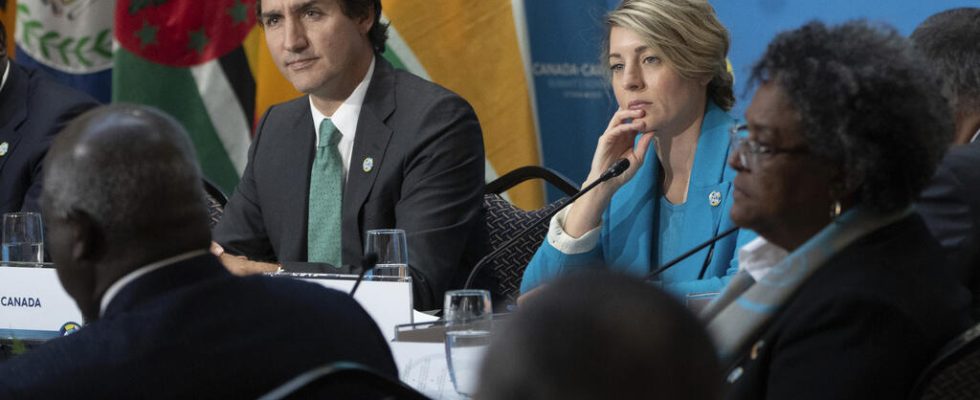Canada had to repatriate two thirds of its diplomatic staff based in India against a backdrop of crisis between Ottawa and New Delhi following the assassination in June of a Sikh separatist leader on Canadian soil. On September 18, the Canadian Prime Minister suggested that Indian service agents were involved in the June assassination of a Canadian of Sikh origin in the Vancouver area.
3 mins
Until the last minute, Canada tried to dialogue with India to avoid the departure of diplomats which the Indian government had set for October 10, says RFI’s correspondent in Montreal, Pascale Guéricolas.
Read alsoIndia: worsening crisis between Ottawa and New Delhi after the murder of a Sikh leader
Finally, Mélanie Joly, Minister of Foreign Affairs, had to resolve to repatriate 41 people and their families because their diplomatic immunity was no longer guaranteed: “ This is a reaction which is contrary to international law and which is contrary to the Vienna Convention. And that’s exactly why we’re not going to react the same way “. Canada therefore refuses to apply retaliatory measures against Indian diplomatic personnel based on its soil.
On the other hand, Marc Miller, the Minister of Immigration, warns that Indian citizens will certainly pay the price for the reduction in consular services in India: “ Service processing delays are expected for requests from India. Customers may experience longer processing times, have to wait longer to receive answers to their questions, or have their visa printed in their passport “. Services at consulates in Chandigarh, Mumbai and Bangalore have been disrupted, the Immigration Minister said.
Visa applicants will have to go to New Delhi, which is a five-hour drive from Chandigarh, says RFI’s correspondent in New Delhi, Sébastien Farcis. “ Most requests are made by students and their families, and it already takes almost two months to get it. Now these families will have to travel back and forth to New Delhi for all these papers, and it should take much longer to get it, because this service is going to be overwhelmed. This will create major problems for these families “, says Pankaj Singh, a visa officer in Punjab. New Delhi’s objective is to sanction the government of Justin Trudeau, long accused of tolerating criminal activities by Sikh independence activists in Canada, such as the trafficking of arms and drugs to India. For the Indian government, the political cost of this measure should be minimal, as it will mainly hit the residents of Punjab, who already vote for the opposition parties.
Since September 21, the Indian government has also stopped issuing visas to Canadian nationals.
Read alsoFaced with tensions, India suspends the processing of visa applications for Canadian citizens
Relations between the two countries have changed since the murder of Hardeep Singh Nijjar in western Canada. Shot dead last June by two masked men in the parking lot of the Sikh temple he led near Vancouver, British Columbia, he campaigned for the creation of “Khalistan”, an independent Sikh state in northern India and was arrived in Canada in 1997, then naturalized in 2015. The man was wanted by Indian authorities for alleged acts of terrorism and conspiracy to commit murder.
